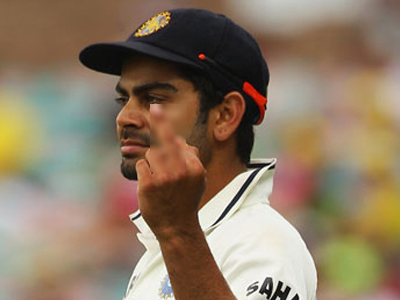Melbourne, Jan 23: Sania Mirza's return to her first Grand Slam after a two-year break was cut short on Thursday when the former world number one was forced to retire midway through her first round match in women's doubles at the Australian Open due to a calf injury.
India's Mirza, who won six Grand Slam doubles titles, took a break from the game after the China Open in October 2017 and gave birth to her son a year later.
The 33-year-old made a winning return to the WTA Tour at this month's Hobart International with Ukrainian Nadiia Kichenok, picking up her 42nd WTA doubles title and the first since winning the women's doubles in Brisbane in 2017.
Mirza said she strained her calf muscle in her right leg during the Hobart final.
"It just got worse in the match. It was bit of a bad strain, but I had a few days off," she told reporters. "So I obviously had to try to do whatever I could to try to get on the court.
"It felt okay when I went on the court, but it was tough to move right. I just felt like I'm gonna tear it or something pretty bad."
Mirza won her first Grand Slam in mixed doubles at the Australian Open in 2009 and also bagged the women's doubles in 2016.
Mirza always believed there was tennis left in her which inspired her comeback, she told Reuters on Sunday.
She had already pulled out of the Australian Open mixed doubles, where she was to partner compatriot Rohan Bopanna.
Mirza and Kichenok were trailing the Chinese pair of Xinyun Han and Lin Zhu 6-2 1-0 on Thursday when the Indian had to call it quits due to the injury.
"As a tennis player you want to compete, it is the Grand Slam. If it's any other tournament, you would probably take a call and be like 'I don't want to risk it'," she said.
Mirza, who is married to former Pakistan cricket captain Shoaib Malik, said she would take two weeks to recover and was hoping to play at next month's Dubai championships.
"When you play a professional sport, injuries are really part of it. And it's something that you have to accept," she said. "Sometimes the timing is really not ideal, it's tough that it happened in a Grand Slam, or just before a Grand Slam."






Comments
Add new comment